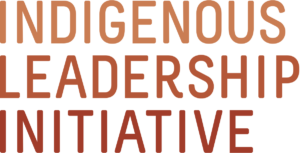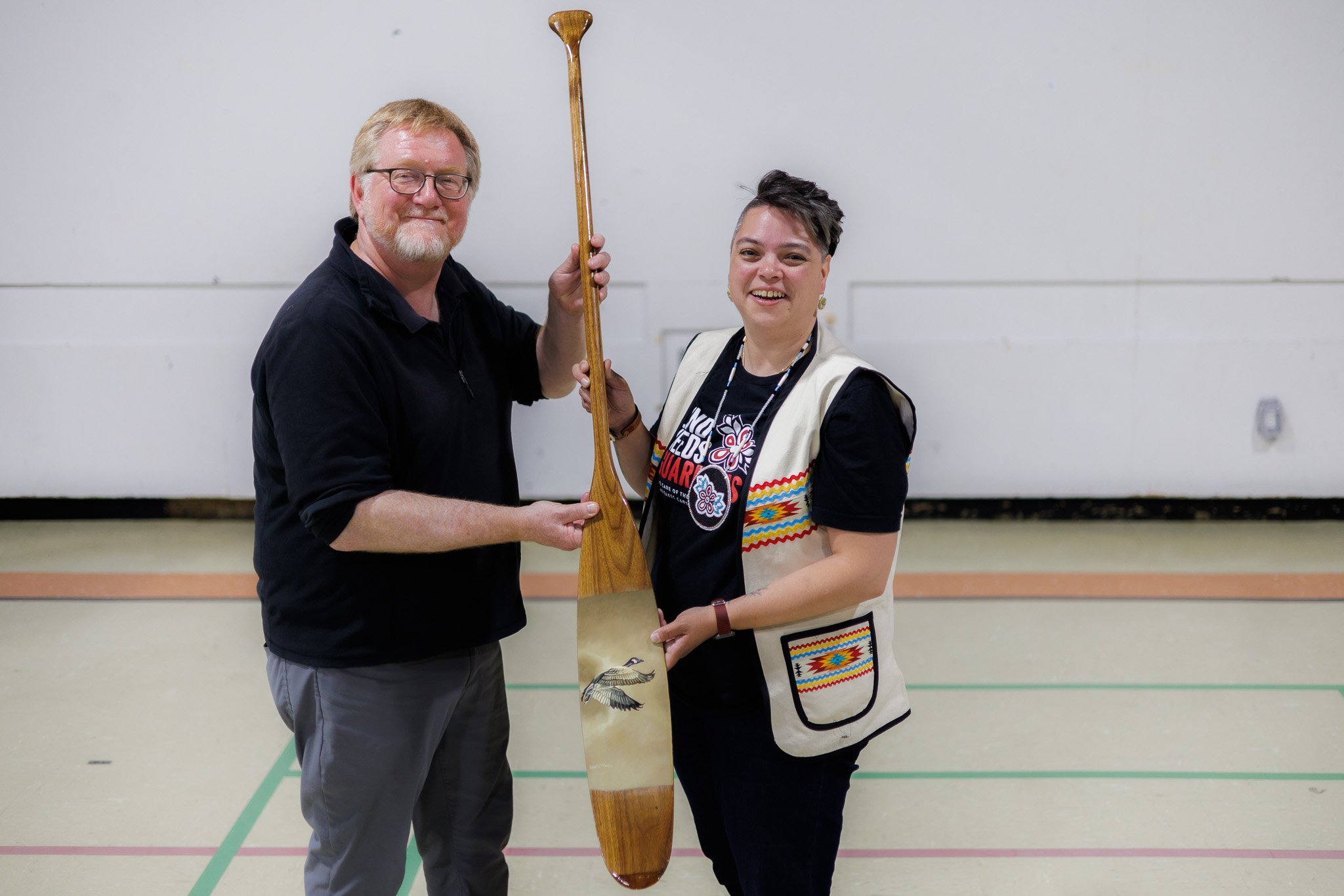Marking A New Era for Indigenous Leadership & Decision Making in Conservation Movement
Representatives from the ILI, IBCC, and Pekuakamiulnuatsh Takuhikan - Mashteuiatsh met in the Ilnu community of Mashteuiatsh, Quebec, to celebrate the transition in leadership.
Mashteuiatsh: June 15, 2023: In an important milestone in the conservation movement, the International Boreal Conservation Campaign (IBCC) and Indigenous Leadership Initiative (ILI) is announcing a major restructuring. ILI is assuming the helm of IBCC’s previous conservation efforts in Canada and absorbing IBCC’s remaining staff, structures, budget, and fundraising. This marks one of the first times a longstanding, successful environmental coalition campaign has stepped back and relinquished control of its assets in order to support Indigenous leadership.
Launched more than two decades ago, IBCC has operated as a broad coalition of major environmental groups, large foundations, scientists, and Indigenous leaders focused on conserving the vast boreal forest ecosystem in Canada, almost all of which also encompasses the traditional land and waters of many Indigenous Peoples. As a result, over time more and more of IBCC’s conservation work bypassed traditional environmental groups in favour of direct investments in and relationships with Indigenous leaders, their governments, and other organizations. That process eventually led to the formation of ILI, which began and grew as an informal network of Indigenous staff and experts, and this year became an independent non-profit organization.
Now, IBCC and ILI are taking the next step in the ongoing process of making conservation more effective and equitable: by mutual agreement ILI will assume leadership of this longstanding initiative, absorb and assume control of IBCCs assets, and step into direct relations with IBCC’s philanthropic and institutional investors.
On June 13, ILI and IBCC’s leadership celebrated this transition with a ceremony and community feast in the Ilnu community of Mashteuiatsh, Quebec. They reflected on the journey so far, evaluated progress, and looked ahead to the future envisioned and defined by ILI’s executive director, board of directors, senior leaders, and team members.
Steve Kallick, who helped found IBCC when he worked at The Pew Charitable Trusts and now works for the Resources Legacy Fund, passed the paddle to Valérie Courtois, Executive Director of ILI.
Helping Usher in a New Era
“ILI is honoured to take the lead, from an Indigenous perspective, on the stewardship of our lands and waters within the context of restoring our Nationhood,” said Valérie Courtois, the Executive Director of ILI. “IBCC is one of the first major environmental initiatives to recognize that decision-making on Indigenous lands must be led by Indigenous Nations. With this transition, the campaign is helping usher in a new era—one that ensures Indigenous Peoples are recognized and supported as the appropriate and natural leaders of conservation of their own homelands.
“In a world where 80 per cent of all remaining biodiversity is on lands cared for and loved by Indigenous Peoples, and in a country where the biggest, most ambitious plans for protecting lands are created by Indigenous Nations, it makes sense for Indigenous Peoples to step the forefront and assume the lead role in determining the future of conservation on our homelands.”
Indigenous leadership is leading a redefinition of conservation. Indigenous Nations in Canada offer comprehensive models for caring for their traditional lands and waters—sustaining biodiversity but also revitalizing their culture and language, improving community health and wellbeing, and creating local economic opportunities. This transition has been recognized and championed by Canada’s federal government, including by making increasing investments in Indigenous-led conservation and stewardship.
Listening, Learning, and Respecting Leadership
“IBCC began as a conventional environmental campaign back in 1999,” said Steve Kallick, who helped found IBCC when he worked at The Pew Charitable Trusts and has served as IBCC director ever since, now employed by the Resources Legacy Fund. “However, we quickly realized the most important thing we could do to protect the boreal forest was to invest in and support the aspirations and leadership of Indigenous Nations. We did a lot of listening and learning over the years,” said Kallick. “We came to see that conservation is the fruit of the tree of justice, rather than vice versa.
IBCC asserts that there are important lessons to be learned from their experience. “It’s not enough to just engage in land acknowledgements or claim that you work with Indigenous Peoples,” said Kallick. “When focusing on ecosystems that are Indigenous Peoples’ homelands, environmental groups and leaders need to step back from the spotlight and become supportive allies. That’s why IBCC is offering our assets and relinquishing control to our Indigenous partners. We hope other NGOs look at this example and do the same.”
With this transition, ILI will have significantly enhanced ability to expand its Indigenous-led conservation agenda. “Indigenous Peoples sustain lands and waters not just for our own interests. We do it because we have a responsibility to care for our territories for the benefit of everyone,” said Courtois. “ILI believes that strong Indigenous Nations can help build a more prosperous and sustainable Canada for all people, and we are working to build that future.”
A community feast in Mashteuiatsh to celebrate the transition.




